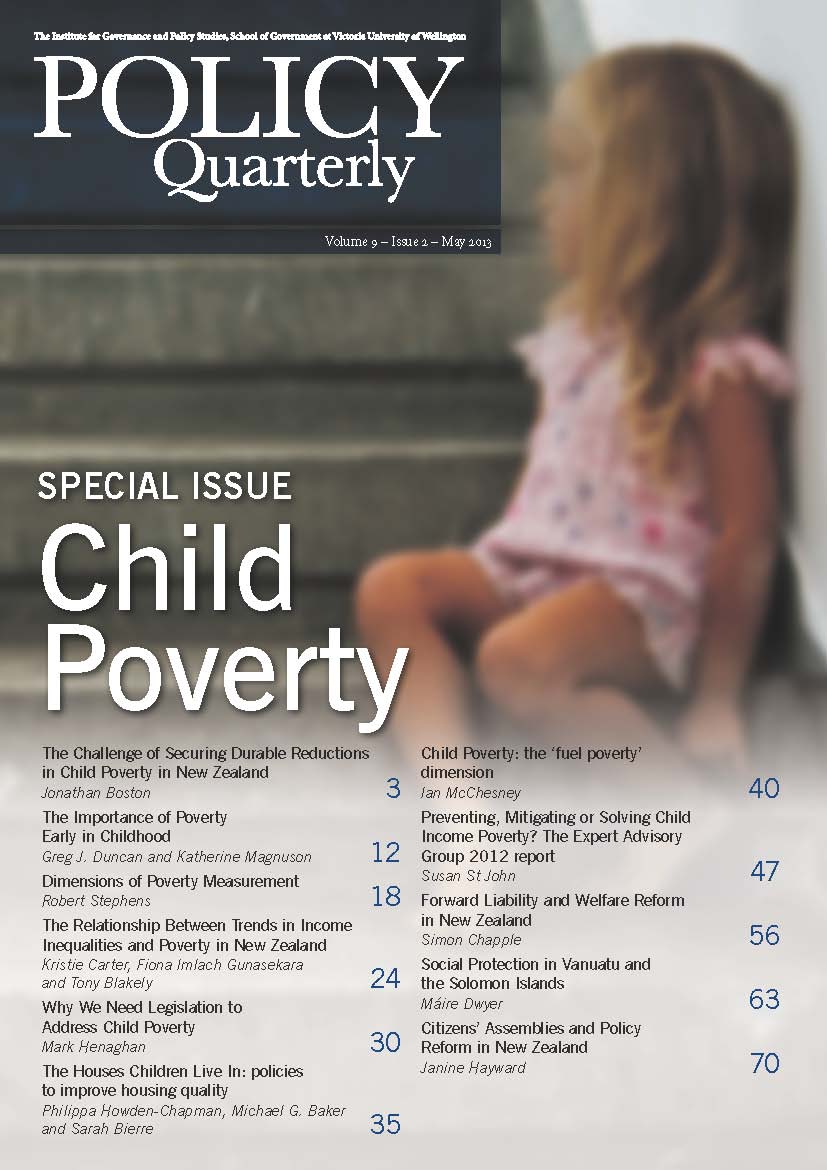Why we need legislation to address child poverty
DOI:
https://doi.org/10.26686/pq.v9i2.4445Keywords:
Expert Advisory Group on Solutions to Child Poverty (EAG), emotional and material well-being, legal recognition, immediate and long-term consequences, Child Poverty CommissionAbstract
Children who live in poverty in New Zealand currently have no legal recognition and no real voice. These children do not choose their circumstances, but are usually born into families experiencing poverty. Children, by their very status as children, have no resources of their own to enable them to improve their own conditions. As a general rule, parents and/ or guardians are legally responsible for the emotional and material well-being of the children in their care. But what happens when some parents and/or guardians are unable to provide for the children in their care? Should these children and their families be merely left to their own devices, or should the government as the elected representatives of New Zealand citizens provide assistance? This article considers the growing child poverty problem in New Zealand and the immediate and long-term consequences of poverty, and examines whether legislation addressing child poverty is required.
Downloads
Downloads
Published
Issue
Section
License
Permission: In the interest of promoting debate and wider dissemination, the IGPS encourages use of all or part of the articles appearing in PQ, where there is no element of commercial gain. Appropriate acknowledgement of both author and source should be made in all cases. Please direct requests for permission to reprint articles from this publication to Policy-Quarterly@vuw.ac.nz.



